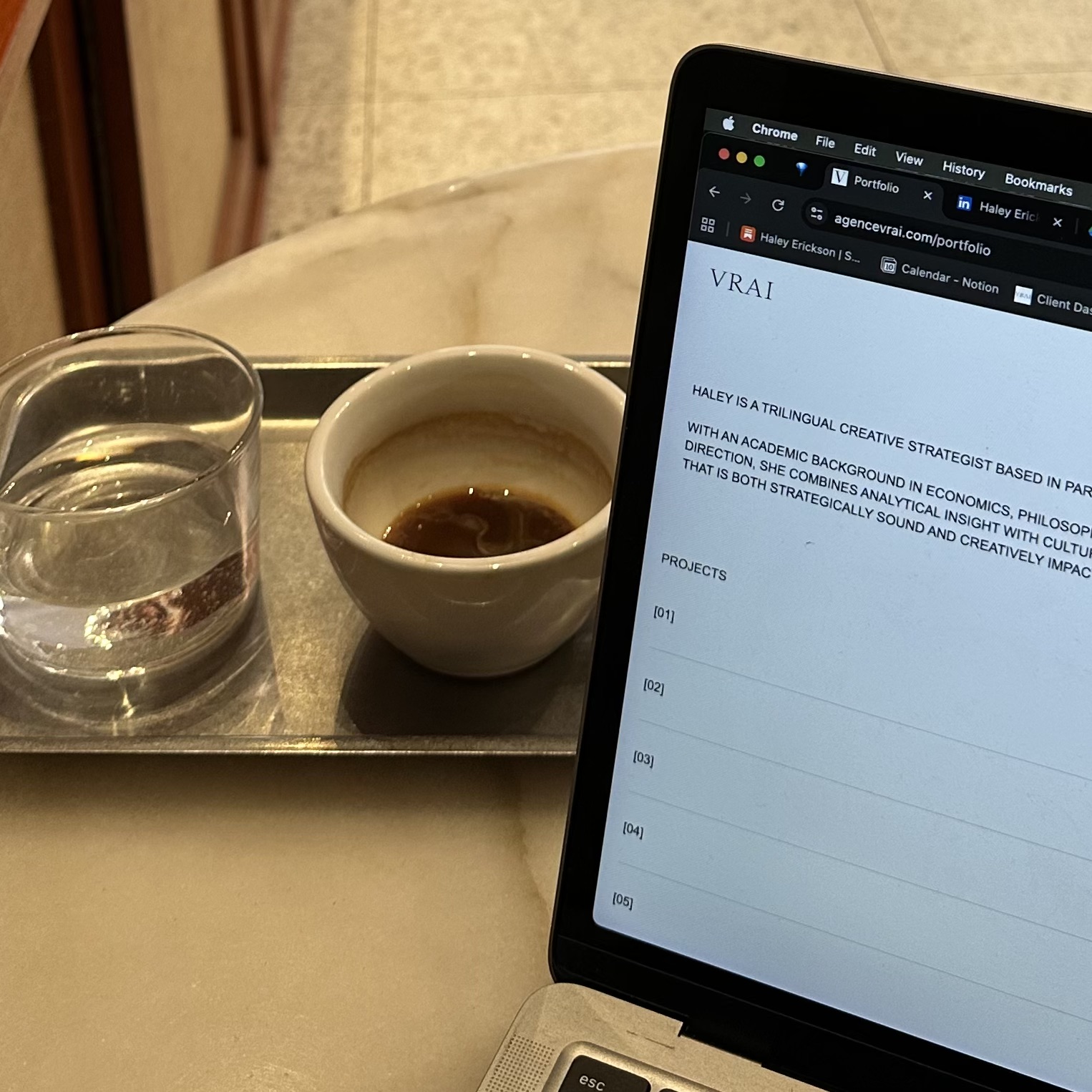
This piece uses a tiny, two-table coffee bar in Paris as a lens to understand the next major shift in consumer behavior. As Paris becomes increasingly commercialized and TikTok-optimized, a countertrend is emerging: hyper-niche, craft-driven spaces are becoming the new anchors of trust and loyalty. The essay argues that the city is splitting into two futures. This pendulum shows up not just in food and retail, but in luxury advertising as well: where Bottega Veneta, Burberry, and Jacquemus are leaning into niche cultural codes, dream-state storytelling, and art-forward references rather than mass-friendly content. Key takeaway: In an era of algorithmic sameness, the brands that stand out will be the ones that go narrow, intentional, and distinct.
Welcome to Vrai, a digital space dedicated to the pursuit of excellence—in mind, body, and spirit.
My life is an exploration of the finest things—not merely in fashion or luxury, but also in academics, sport, philosophy, and personal growth. I've stood atop the Alps, savored couture in the world's fashion capital, studied quantum physics and great philosophers, tasted exquisite wines and cuisine, and experienced cultures around the globe.
At Vrai, I share these experiences and reflections—critiquing pop culture, pondering economics and markets, diving deep into thought experiments, and revealing personal insights. This space aims to elevate your everyday life by nurturing your intellectual curiosity, creative impulses, and mindful consumption.

Polyhedron is an intimate manifesto on love, absence, and selfhood. From the violated spectacle of the Eiffel Tower to dishes at midnight, a fleeting hummingbird, and the cosmic elements of stars and dirt, it explores the space we occupy between earth and sky. The piece confronts the roles women are cast into — muse, maid, specimen — rejecting the projections and performances of men, a journey from silence and erasure toward limitlessness, refusing to be reduced to an image in someone else’s story.
→
In this manifesto, Haley Erickson defends Demna Gvasalia’s misunderstood legacy at Balenciaga and affirms his radical appointment at Gucci. Through sharp cultural critique, personal insight, and detailed analysis of the Balenciaga by Demna exhibition, this essay argues that Demna’s provocative approach is not only innovative—it interrogates the very idea of innovation itself. Like Cristóbal Balenciaga, who designed for the realities of his time, Demna confronts the cultural conditions of ours: superficiality, meme culture, and the commodification of aesthetics. Tracing his thematic use of volume, readymade, trompe-l’œil, and upcycling, Erickson reveals how Demna mirrors society’s absurdities while reanimating Cristóbal Balenciaga’s spirit. The piece closes by forecasting how Demna’s disruptive vision is poised to revive Gucci, a house historically fueled by drama, reinvention, and bold creative leadership. For those who get it—this is fashion that dares to shape culture, not just reflect it.
→